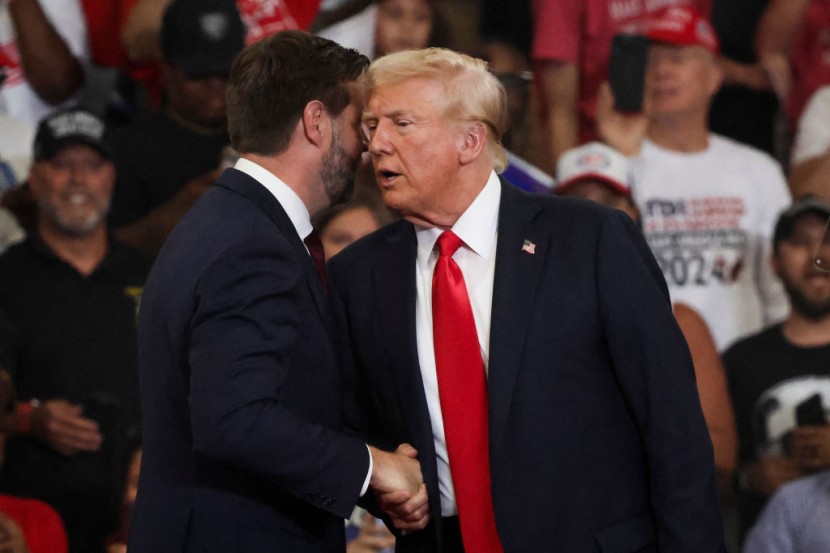
Former President Donald Trump's campaign said Saturday that its internal communications were hacked and blamed the cyberattack on "foreign sources hostile to the United States."
The acknowledgement from campaign spokesperson Steven Cheung came after Politico reportedly received a series of emails that apparenlty came from the account of a senior Trump campaign official.
The emails included a 271-page compilation of research on Trump's running mate, Ohio Sen. JD Vance, Politico said.
The dossier, dated Feb. 23, was based on publicly available information about Vance's history and past statements, with his previous criticism of Trump among those labeled "potential vulnerabilities," Politico said.
A partial dossier on Florida Sen. Marco Rubio, who was a potential Trump running mate, was also reportedly hacked and provided to Politico.
Two people familiar with the documents confirmed their authenticity, with one saying the Vance dossier was an early version of the file used to vet him for his role as the Republican vice presidential candidate, according to Politico.
In a prepared statement, Trump campaign spokesperson Steven Cheung told the outlet, "These documents were obtained illegally from foreign sources hostile to the United States, intended to interfere with the 2024 election and sow chaos throughout our Democratic process."
"On Friday, a new report from Microsoft found that Iranian hackers broke into the account of a 'high ranking official' on the U.S. presidential campaign in June 2024, which coincides with the close timing of President Trump's selection of a vice presidential nominee," Cheung said.
Cheung declined to say if the Trump campaign had substantiated that Iran was behind the hack or whether it has contacted Microsoft or law enforcement, Politico said.
The emails to Politico reportedly began arriving on July 22 from an AOL account.
The sender, who used the name "Robert," claimed to have a "variety of documents from [Trump's] legal and court documents to internal campaign discussions," Politico said.
When pressed on where the documents came from, Robert reportedly replied, "I suggest you don't be curious about where I got them from. Any answer to this question, will compromise me and also legally restricts you from publishing them."
In 2016, hackers obtained troves of emails from Democrats tied to Hillary Clinton's presidential campaign and posted them online during the run-up to that year's Democratic National Convention.
U.S. intelligence agencies later concluded the operation was part of an influence campaign ordered by Russian Vladimir Putin to undermine faith in American democracy and hurt Clinton's "electability and potential presidency."
A federal grand jury later indicted 12 members of Russia's GRU intelligence agency for allegedly hacking into the computer networks of Clinton's campaign, the Democratic National Committee and the Democratic Congressional Campaign Committee but no arrests have been reported.








